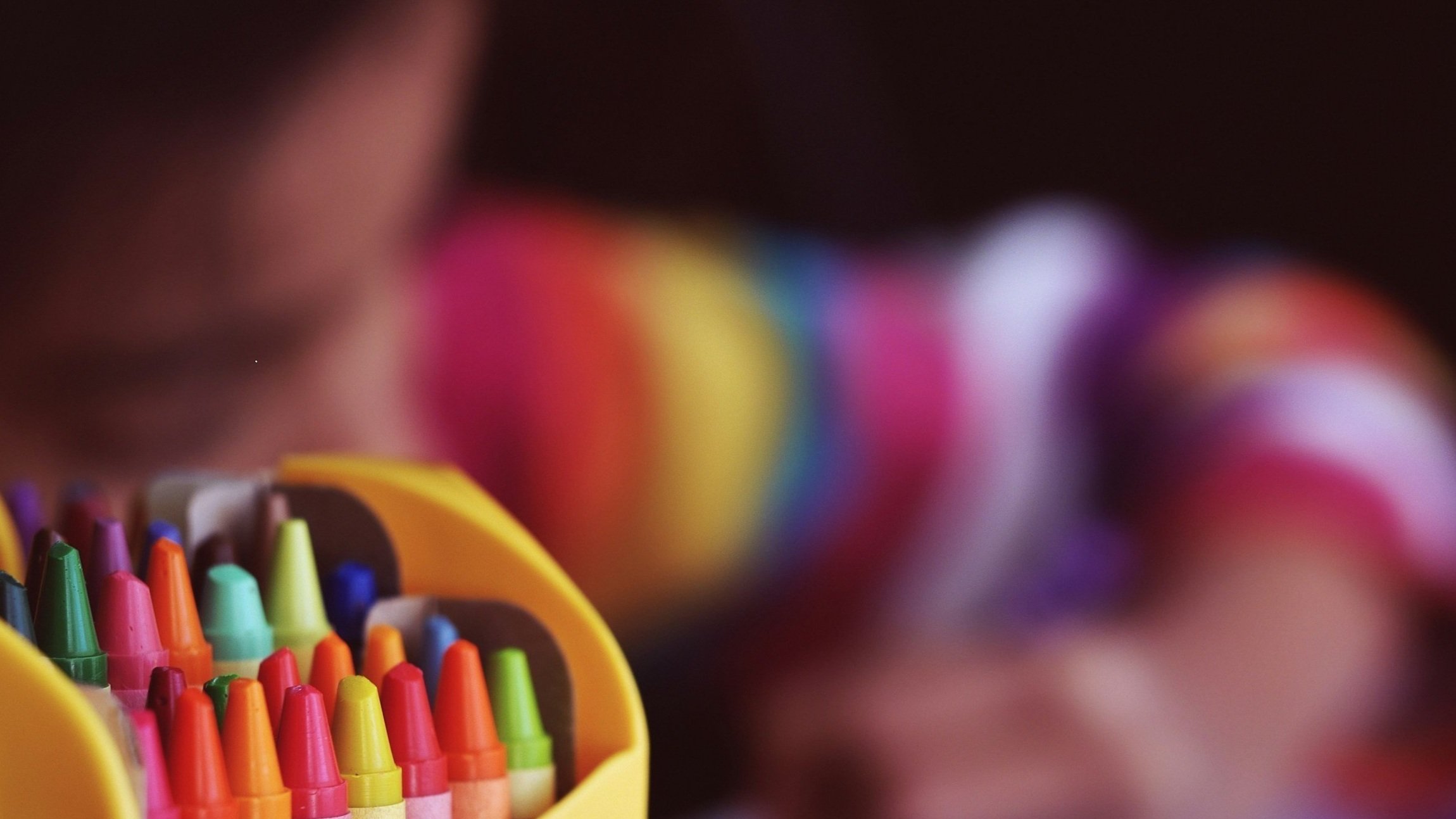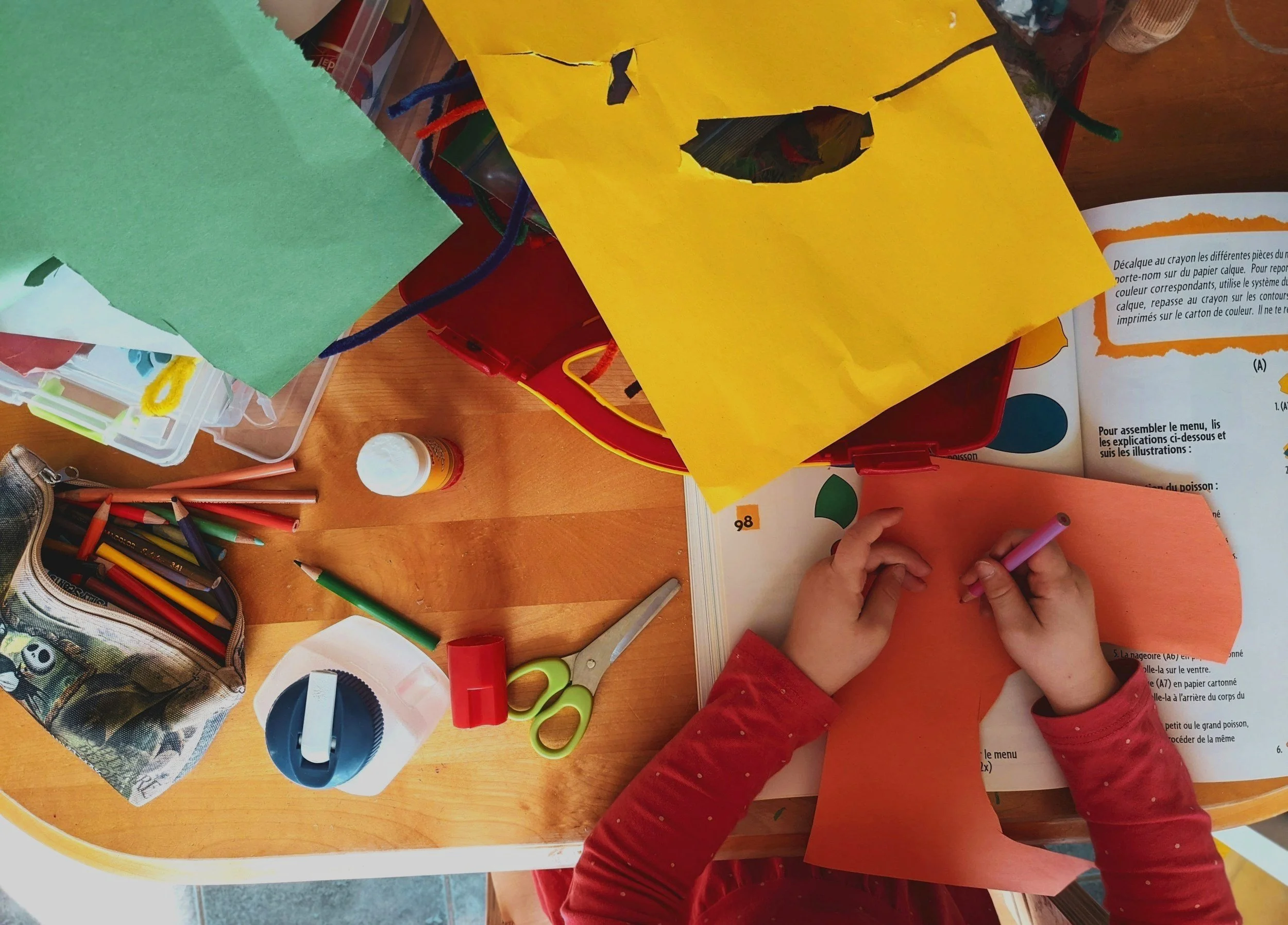
Sexuality Education Program
Kindergarten to Grade 6
Our experienced educators will come to your school to deliver Sexuality Education for elementary classes. Students will develop skills, values and attitudes that foster cultures of inclusion, inform personal decision-making and help students to thrive.
We believe the key to impacting a child’s life is affirming their uniqueness and letting them know, ‘you belong, you are normal, you are not alone.’
Our curriculum reflects this message, celebrating individuality and challenging shame narratives.
K - 6 Sexuality Education Program
This program promotes holistic well-being through incremental learning about relationships, bodies, personal safety, gender, and boundaries. Students will participate in age-appropriate lessons that invoke creativity, curiosity, and critical thinking, inviting them to develop pride in their unique contribution to the world and that of their peers.
Each class will participate in a series of 45-minute lessons that can be delivered according to each school's schedule.
This program is aligned with the Culture and Citizenship in Quebec Program.
Each lesson includes summative assessments with rubrics for teachers to evaluate students’ understanding.
-
In Kindergarten, students will explore foundational concepts of safety, boundaries, individuality, and respect—essential building blocks for fostering healthy relationships and personal well-being in the years to come.
-
In Grade 1, students will explore family diversity, self-expression, body care, and building kind, respectful friendships, setting the foundation for empathy and healthy connections.
-
In Grade 2, students will celebrate the uniqueness of their bodies and learn the correct names for private parts. They'll explore the journey of a baby, including development stages and the big welcome. Students will also be introduced to emotions and gender stereotypes.
-
In Grade 3, students will explore stereotypes, uncovering where they come from, how they influence identity, and how to be an ally. They will also develop personal safety skills, learning how to respond confidently in tough situations.
-
In Grade 4, students will explore the physical and emotional changes that come with puberty. They'll also reflect on identity, peer pressure, and belonging, learning how to be true to themselves and repectful of others. Relational skills will be taught, supporting students as they build healthy friendships and navigate crushes.
-
In Grade 5, students will explore aspects of identity, including sexual orientation and gender identity, and learn to appreciate diversity. They'll navigate puberty, understanding hormones, emotions, and relationships. Students will learn about consent and boundaries in online settings, taking charge of their health, safety, and well-being.
-
In Grade 6, students will explore concepts including intersectionality and human rights, learning how to advocate for what they believe in and be an ally. As they navigate the digital world, they’ll focus on safe, respectful online interactions. Students will also gain a deeper understanding of sexual health, including STIs, empowering them to make informed, responsible decisions.
We Also Offer Parent Information Sessions:
These sessions invite parents into the conversation. We will demystify elementary sexuality education, review what students will learn in class and answer any questions or concerns.
Incremental Themes
Our themes build upon knowledge and concepts introduced in previous lessons to provide a well-rounded educational experience.
Contemporary Content
The content included in each theme is responsive to the challenges faced by kids in 2025. Students will have the opportunity to critically examine media, advertisements, themes, and concepts relevant to them.
Educational Activities
Our activities are designed to keep students engaged through art practices, role-play activities, storybooks, educational songs, dance, and mindful breathing.
Evidence Based
Lessons are based on key ideas from the Government of Quebec, UNESCO guidelines for sexuality education and current, high-quality research.
Benefits of Early Sexuality Education
Our goal is to provide foundational skills that will become key components of future sexual and personal wellness, such as consent, healthy relationships and establishing shame-free narratives about body parts.
-
Children can be set up for present and future well-being by introducing concepts that will become pillars of wellness and safety as students grow.
For example, learning about consent and boundaries between friends can later be translated into romantic relationships.
Scaffolding foundational knowledge and skills with age-appropriate content fosters future healthy sexuality, decision-making, and well-being across the life course.
-
Children develop a personal sense of gender identity and express curiosity about their bodies and the experiences of others from the earliest of ages.
If children are only presented with stereotypical ways of being, they may become ashamed of the parts of themselves that are not represented or acknowledged.
It is important to take opportunities to ensure children feel accepted and celebrated.
For example, students can learn that it is okay to have two mums or be a boy who likes the colour pink.
-
If we do not provide age appropriate answers to questions about bodies and gender, kids may look to the internet, media, older siblings, or rumours they hear on the playground for answers that may be misleading, or harmful.
Avoiding such questions can teach children that the topics are shameful, bad, or something to be hidden.
It is necessary to offer children accurate, shame-free, developmentally appropriate answers to their naturally occurring questions.
-
Gender norms, roles, and stereotypes are learned, and perpetuated in schools.
We can teach children about harmful gender stereotypes (i.e. all girls are sweet, like pink and play with dolls, boys don’t cry, should be strong and good at math) early on to prevent bullying, promote peer acceptance, and redirect harmful narratives before they solidify.
Our Educational Philosophy.
Our educational framework is grounded in creative learning, offering students opportunities to engage in dynamic discussions and have curiosity met with compassion. We value the experiences and ideas of each child, encouraging them to make unique discoveries and draw their own conclusions.
All Kids Deserve to Feel Like They Belong
•
All Kids Deserve to Feel Like They Belong •
The Plan.
-
If you are interested in our workshops, fill out our workshop inquiry form to introduce us to your needs, and inclusive vision. We will review your inquiry and provide a quote for our services.
-
Next, we will develop a personalized proposal for you to review.
-
Experience our programs, and walk away with evidence-based knowledge, skills, and resources to actualize your inclusion vision.
-
Fill out a Workshop Inquiry form today and take a step towards becoming a leader in inclusive education initiatives!
“If we hope to live in a society that values all people and where every child has an opportunity at success, then we need to continue finding ways to teach inclusivity about hidden marginalized experiences, as well as the dominant and mainstream perspectives.”
― G.D. Meyer
Send us a Question.
Do you have any questions? Please do not hesitate to get in touch. Whether it be about gender and sexuality education, an inqiry about inclusive resources for kids, directions to contemporary reseach, or to see if You Belong is right for you, we would love to hear from you.




